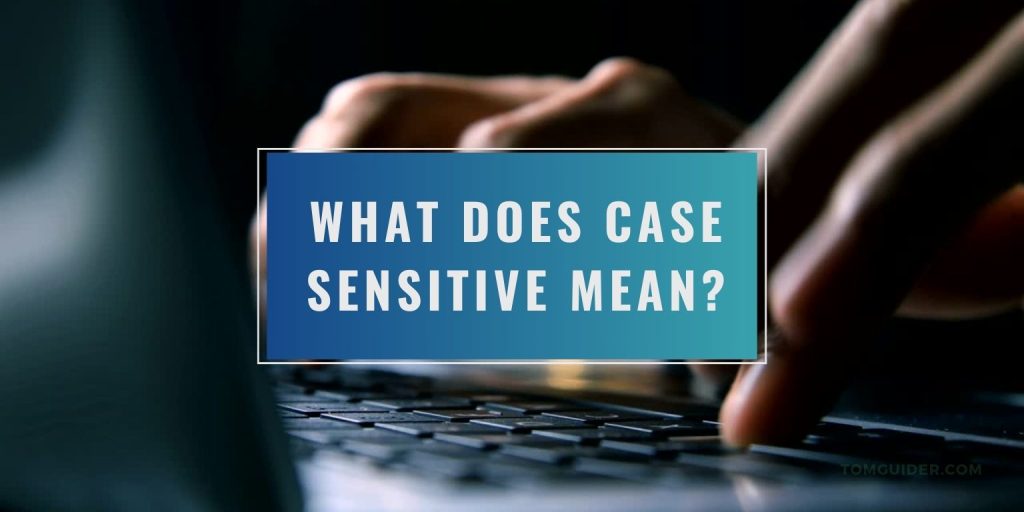You may encounter the term case sensitive when working with passwords, file names, programming languages, and search queries. Understanding what this means can help avoid errors, improve security, and ensure compatibility across different systems.
This guide explains case sensitivity, where it applies, and how it affects everyday digital tasks.
What Does Case Sensitive Mean?
Case sensitivity refers to the distinction between uppercase and lowercase letters in digital systems. A system that is case-sensitive treats “Password,” “password,” and “PASSWORD” as three different values, while a system that is case-insensitive treats them the same.
For example, if a login system is case sensitive, entering “MyPass123” instead of “mypass123” will result in an incorrect password error.
Some digital environments enforce case sensitivity for security reasons, while others allow case-insensitive inputs for user convenience.
Case Sensitivity in Passwords
Most online platforms and banking services use case-sensitive passwords to increase security. Requiring an exact match between uppercase and lowercase letters helps reduce unauthorized access by making passwords more challenging to guess.
A common mistake occurs when Caps Lock is accidentally enabled, leading to login failures. Some users also struggle with password memory, especially if they don’t remember whether they used uppercase or lowercase characters.
To avoid issues, it’s best to:
- Use a password manager to store case-sensitive passwords.
- Enable “Show Password” when typing to verify input.
- Check for Caps Lock and Num Lock settings before entering credentials.
While case sensitivity improves security, it also increases the risk of lockouts due to minor mistakes. Many websites now allow password recovery options to help users regain access.
How Case Sensitivity Affects Programming
In coding and programming languages, case sensitivity determines whether variables, functions, and commands must match exactly as written. Some languages treat “VariableName” and “variablename” as different identifiers, while others do not.
1. Case-Sensitive Languages
Languages like Python, Java, C++, and JavaScript are case-sensitive. This means that writing:
myVariable = 10
print(MyVariable)
This will result in an error because “myVariable” and “MyVariable” are not the same.
2. Case-Insensitive Languages
Languages like SQL (some databases), HTML, and BASIC are case-insensitive. This means that writing:
<TITLE>My Webpage</TITLE><title>My Webpage</title>
It will not cause errors because HTML tags are treated the same regardless of the case.
For programmers, case sensitivity affects debugging and consistency. Minor typos, like using uppercase instead of lowercase, can cause scripts to fail unexpectedly.
File Systems: Are File Names Case Sensitive?
File systems handle case sensitivity differently, depending on the operating system.
- Windows (Case-Insensitive by Default): File names on Windows are usually case-insensitive, meaning “Document.txt” and “document.txt” are considered the same file.
- macOS (Case Sensitivity Optional): By default, macOS treats file names as case insensitive, but users can enable a case-sensitive format when setting up their drive.
- Linux (Case Sensitive by Default): Linux is entirely case sensitive, meaning “Report.pdf” and “report.pdf” are two different files.
This can create compatibility issues when transferring files between Windows and Linux systems, especially in software development environments.
Case Sensitivity in Searches and Databases
Search engines, databases, and login forms handle case sensitivity differently based on system design.
Search Engines
Most search engines, including Google, Bing, and Yahoo, are case-insensitive. This means that searching for “best smartphones” and “BEST SMARTPHONES” will return the same results. Search engines ignore case to improve user experience, as people often mix uppercase and lowercase letters when typing.
However, some search engines, especially internal site search tools, may be case-sensitive, depending on configuring. For example, a website’s internal search function may return different results for “Product X” and “Product X” if the system is case-sensitive. This can create inconsistencies in search results, making it harder for users to find relevant information.
Databases
Databases store and retrieve data based on predefined case-sensitivity rules. Some databases, such as MySQL and PostgreSQL, allow developers to choose whether searches are case-sensitive or case-insensitive.
In case-sensitive databases, searching for “JohnDoe” will not return results for “johndoe”, because the system treats them as two separate values. This can be useful when case differentiation matters, such as managing usernames, product codes, or programming commands.
On the other hand, case-insensitive databases do not distinguish between uppercase and lowercase letters. Searching for “NewYork” or “newyork” will return the same results. Most databases handling customer records, e-commerce data, and search queries prefer case insensitivity to ensure consistency in data retrieval.
Developers must carefully select case sensitivity settings when designing databases, as changing these rules later may cause compatibility issues with stored data.
Login Forms
The case sensitivity of login forms varies depending on the system. While passwords are always case-sensitive, usernames are usually case-insensitive.
For example, when logging into an email account, entering “Johndoe123” and “johndoe123” as the username will work the same way. However, if the password is “SecurePass!99”, typing “securepass!99” will result in a login failure.
Case-sensitive passwords are used for security reasons. Allowing case variation in passwords makes them harder to guess, increasing protection against hacking attempts. However, usernames are often case-insensitive because users may accidentally capitalize letters or forget their exact format.
Some systems also apply case sensitivity to security questions, PIN codes, and verification answers, requiring users to enter them exactly as they were set. To avoid login problems, users should:
- Double-check capitalization before submitting credentials.
- Use a password manager to store login details accurately.
- Enable password visibility when typing to verify correct input.
Programming Search Queries and APIs
Some programming search functions are case-sensitive, which can cause issues when retrieving data from APIs, databases, or file systems. If a developer writes a query that only recognizes uppercase inputs, users searching with lowercase terms may not find what they seek.
For example, in JavaScript:
let searchTerm = “Laptop”;
if (userInput === searchTerm) {
console.log(“Match found!”);
}
This case-sensitive comparison means a user searching for “laptop” instead of “Laptop” would not get a match.
Developers often apply case normalization to ensure search functions return consistent results. This involves converting all inputs to lowercase or uppercase before processing them, ensuring case
Why Some Systems Use Case Sensitivity, and Others Don’t
The decision to enforce case sensitivity depends on security, usability, and historical system design.
- Security – Case-sensitive passwords add an extra layer of protection.
- Convenience – Case-insensitive usernames reduce login errors.
- Compatibility – Older systems often maintain case sensitivity due to legacy programming constraints.
Systems prioritize case sensitivity for critical authentication while allowing case-insensitive inputs where user convenience matters.
Are Email Addresses Case Sensitive?
Most email services treat email addresses as case insensitive. This means that:
- John.Doe@domain.com
- john.doe@domain.com
- JOHN.DOE@DOMAIN.COM
All lead to the same inbox. However, some email servers may store email addresses with case sensitivity, though this is uncommon.
For best practice, always enter email addresses in lowercase to avoid confusion.
URLs and Case Sensitivity in Web Addresses
Domain names are always case insensitive, meaning Example.com and EXAMPLE.COM will load the same website.
However, parts of a URL after the domain name can be case sensitive, depending on the server. For example:
- example.com/Products
- example.com/products
May point to different pages on some websites, particularly those hosted on Linux servers.
To avoid issues, URLs should be standardized in lowercase when designing websites.
How to Avoid Case Sensitivity Errors in Everyday Tasks
Case sensitivity can lead to login failures, programming errors, and file mismatches. Here’s how to prevent common mistakes:
- Be consistent with capitalization when writing usernames and passwords.
- Check for Caps Lock when entering passwords or log in credentials.
- When coding, follow consistent naming conventions to avoid errors.
- Save files with clear names to prevent duplicate versions in case-sensitive systems.
- Use lowercase URLs to ensure compatibility across different servers.
These simple habits help reduce frustration and improve efficiency when working with case-sensitive systems.
Conclusion
Case sensitivity is crucial in password security, programming, file management, and web addresses. Understanding how it works can help avoid errors and improve workflow efficiency.
Users can navigate digital environments more effectively by being mindful of how different systems handle case sensitivity. If this guide helped clarify case sensitivity, share it with others who may need the same information.




